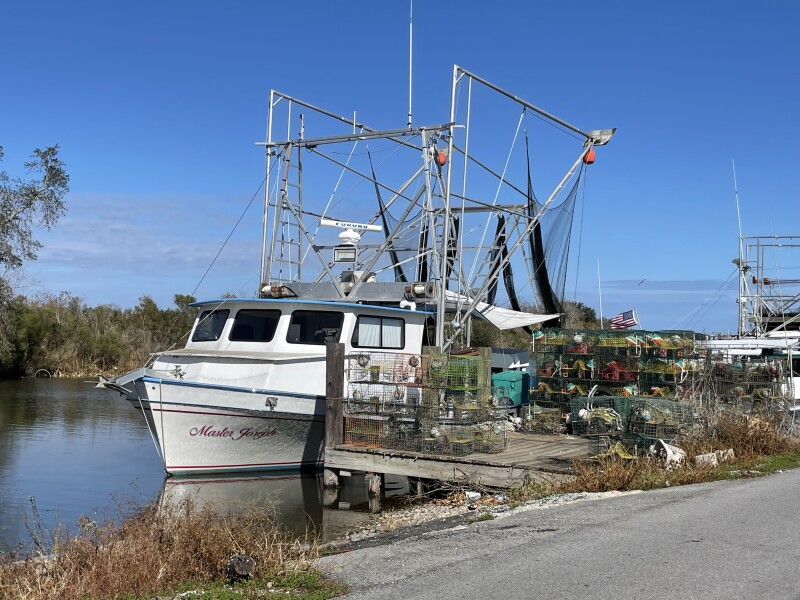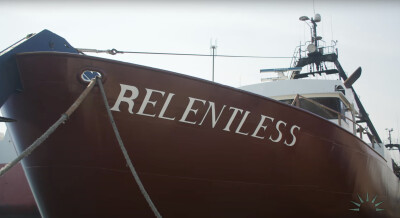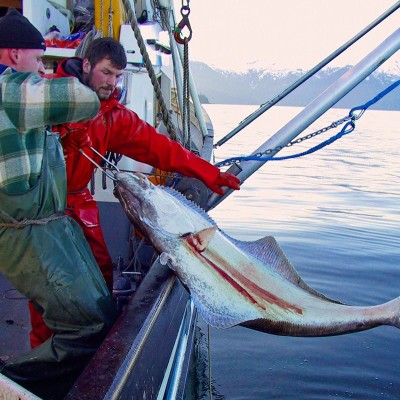Over the course of the past year, Dave Williams, a commercial fishery scientist and founder of SeaD Consulting, has been testing shrimp in restaurants all around the Gulf states, Georgia, and the Carolinas to find out if they are selling imported farmed shrimp as Gulf shrimp. The results have been astounding, with restaurants tested in Charleston, South Carolina, showing a 90 percent fraud rate.
Williams’s work, sponsored by the industry group Southern Shrimp Alliance, has prompted the passage of new laws and increased enforcement of existing laws aimed at protecting the U.S. domestic shrimp fleet.
Alabama’s Seafood Labeling Law was passed in May 2024 and took effect on October 1, 2024. It requires food service establishments including restaurants, grocery store delis and seafood retailers, to list the country of origin of its fish and shellfish, or that the product was imported.
The law also requires labels to state if the seafood was farm raised or wild caught. Suppliers must provide the seafood’s country of origin to the restaurants and delis. The law is enforced by the state Department of Public Health and consumers who believe there is a violation of the law can file a complaint via an online form.
Louisiana was an early leader in the push for labeling, with a law requiring restaurants to specify the country of origin for seafood since 2019, now updated it in 2024. The strengthened law designates an additional enforcement agency and took effect on January 1, 2025. It specifically prohibits claiming that imported shrimp originated in the U.S.
The original law gave enforcement authority to the state’s Department of Health. Although health inspectors recorded over 2600 violations of the law in 2023, they issued no fines. The new law adds the Louisiana Department of Agriculture to the enforcement team, and agents will inspect labels during regular weights and measures checks.
Beginning July 1, 2025, all seafood and crawfish sold in Mississippi–including in restaurants, markets and food trucks—must be labeled as imported or domestic under House Bill 602 passed by the state legislature in April. The law applies to wholesalers and processors as well, and is to be enforced by the state Department of Marine Resources and the state Department of Agriculture and Commerce through inspections.
In Texas, the legislature passed two measures in May aimed at cracking down on imported shrimp. Senate Bill 823 prohibits restaurants from misrepresenting imported shrimp as Texas, Gulf, Domestic or American shrimp and requires seafood suppliers, wholesalers and distributors to provide on their product labels “clear and conspicuous notice stating whether the shrimp is imported.” The law will take effect Sept. 1 this year. The legislature also passed House Concurrent Resolution 76 asking the federal government for additional oversight and regulation of shrimp imports to the U.S.
Although it is illegal to mislabel seafood in Florida, enforcement is reportedly limited. While SeaD’s testing found high rates of fraudulent labeling in Florida, according to the Southern Shrimp Alliance, the state does not have any laws specifically aimed at protecting domestic shrimp in the marketplace.
In February 2025, the Georgia House of Representatives passed House Bill 117, which would have required all commercial food service establishments serving imported shrimp to display a placard saying “Foreign Imported Shrimp” or label each menu item containing shrimp with “Foreign Imported.” While that bill passed overwhelmingly in the House, 165-7, it was tabled in the state Senate.
With Charleston restaurants showing 90 percent fraudulent labeling of shrimp, the state legislature introduced H4248, a bill “To amend the South Carolina code of laws… so as to require that all shrimp products sold in the state have a label noting the country of origin of the shrimp.” The bill is still in committee.
Unlike the other shrimp-producing states where SeaD conducted testing, North Carolina has no shrimp labeling laws on the books and no legislation pending. Nonetheless, the work of the Southern Shrimp Alliance and SeaD Consulting has produced positive results for domestic shrimpers, prompting tougher labeling laws and enforcement in most states so that fishermen can receive premium prices for premium domestic shrimp.







